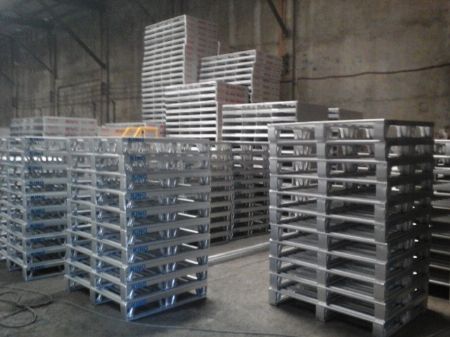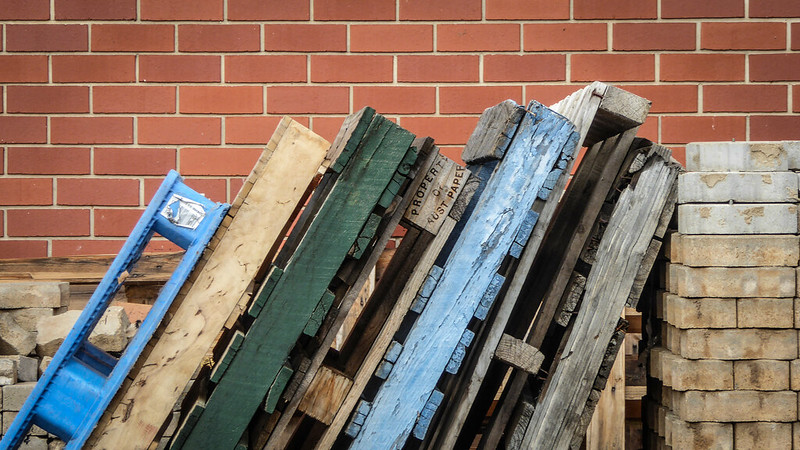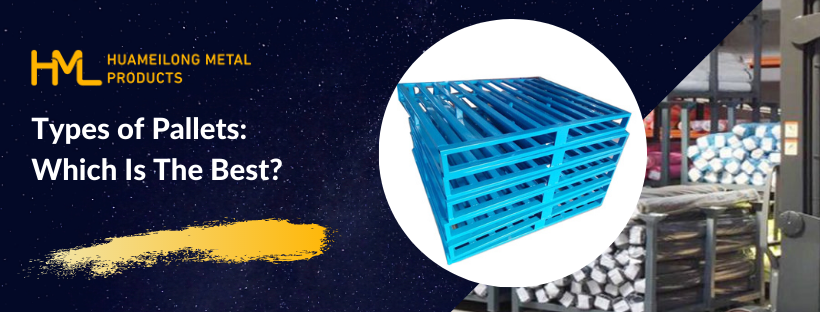Nearly 1.5 billion pallets move merchandise of various shapes and sizes across every manufacturer at any given moment. Wood pallets are the most common, and they’ve remained popular with supply chain and logistics managers for decades since they’re less expensive than plastic or steel pallets.
Because pallets are used in many different industries and have so many other specifications, logistics managers must avoid the “one-size-fits-all” mindset. Instead, logistics managers should analyze whether the alternatives could help enhance efficiency and decrease costs for their company’s specific applications to guarantee choosing the optimal pallet option.

Choosing the proper pallet for the work necessitates a thorough understanding of the strengths and disadvantages of each material.

Cheaper Cost With Wood Pallets
The most popular pallet material is still wood, used in many open-loop warehouse setups. Wood pallets have the following characteristics:
Low upfront costs: Wood pallets are simple to prototype and build and are relatively inexpensive and quick.
Constant reordering costs: Because wood is an organic material, it splinters easily and warps or weakens quickly. Reordering expenses can substantially rise to these qualities.
Convenient Application With Plastic Pallets
Every manufacturer, including HML., produce million of new pallets each year, accounting for approximately 2% of all new pallet production. As a result, they are frequently prominent in the automotive, beverage, and pharmaceutical industries. Below are some of the major advantages of using plastic pallets:
Contamination tolerance: Unlike wood, plastic is resistant to contamination by poisonous liquids and other agents. Shippers save time and money by not replenishing pallets because plastic pallets can be cleaned and disinfected.
Pallets are weather-resistant because they do not absorb moisture, which causes mold development and adds to the pallet’s overall weight.
Ideal Like Steel
Steel pallets from HML are prominent in the automotive, culinary, chemical, and pharmaceutical industries and account for fewer than 1% of all pallets now in use. Consider the following characteristics while choosing steel pallets:
Steel pallets can save insurance costs since they are non-combustible, but their wood and plastic equivalents can fuel existing fires. Metal pallets, like plastic pallets, don’t need to be treated for bungs or other pests. Several compounds can also burn or penetrate.
Steel is highly sturdy and will not crack or distort under strain, resulting in lower replacement costs. In addition, this overall durability reduces down costs because steel pallets need to be changed less frequently than wood or plastic pallets.

